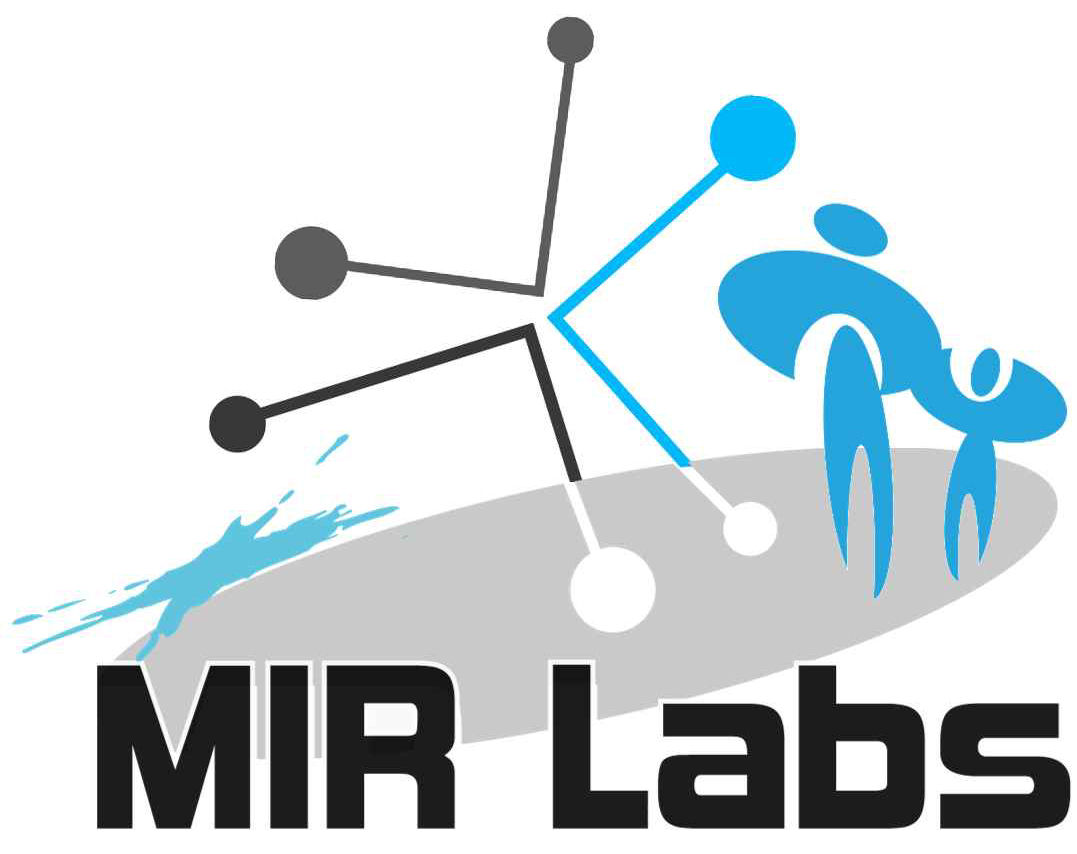
|
 |
| Nikolaos Mavridis |
|---|
| New York University AD, Abu Dhabi |
| Regular Member |
| Personal Web Site: |
| Main page: http://www.mirlabs.net/global/index.php?c=main&a=person&id=722 |
| Short Biography |
|
Prof. Nikolaos Mavridis received his PhD degree from the Massachusetts Institute of Technology (MIT) in 2007, as well as an MSc from UCLA, and a M.Eng. from the Aristotle University of Thessaloniki. He is currently serving as an Ass. Professor at New York University (NYU) in its Abu Dhabi campus, and is also a Research Professor in NYU Poly and at NCSR Democritus. He is the founder and director of the Interactive Robots and Media Laboratory (IRML), which has received worldwide media attention for the world’s first Arabic-Language Conversational Android Robot Ibn Sina, as well as the Microsoft award funding recipient FaceBots project – on human-interaction robots that utilize and publish social information on FaceBook. During his studies at MIT, he developed the conversational robot Ripley, whose abilities of connecting language to sensorymotor activities are comparable to those required for passing the “Token Test”, a psychological test for children. He is the co-author of more than 30 publications in scientific journals, books and conferences, with at least 250 known citations, has given numerous invited lectures worldwide, and his robots have appeared in media of more than 30 countries. |
| List of top 5 publications in the last 5 years |
|
1. N. Mavridis, D. Roy, “Grounded Situation Models for Robots: Where words and percepts meet”, IEEE Conference on Intelligent Robots and Systems IROS 2006, pp. 4690-4697 2. D. Roy, K. Hsiao and N. Mavridis, “Mental Imagery for a Conversational Robot”, IEEE Transactions on Systems, Man & Cybernetics Part B, Vol. 34:3, 2004, pp. 1374-1383 3. N. Mavridis and D. Hanson, "The IbnSina Center: An Augmented Reality Theater with Intelligent Robotic and Virtual Characters", 18th IEEE International Symposium on Robot and Human Interactive Communication (RoMAN09), Toyama, Japan, pp. 681-686 4. N. Mavridis, S. Emami, et al.,“FaceBots: Steps Towards Enhanced Long-Term Human-Robot Interaction by Utilizing and Publishing Online Social Information”, Springer Paladyn Journal of Behavioral Robotics, Vol 1:3, 2011, pp. 169-178 5. N. Mavridis, W. Kazmi and P. Toulis, "Friends with Faces: How Social Networks Can Enhance Face Recognition and Vice Versa", in book “Computational Social Networks Analysis: Trends, Tools and Research Advances”, Springer Verlag, Germany, 2010, pp. 453-482, ISBN 978-1-84882-236-8 6. N. Mavridis, N. Giakoumidis and E. Machado, “A Novel Evaluation Framework for Teleoperation and a Case Study on Natural Human-Arm-Imitation Through Motion Capture”, Springer International Journal of Social Robotics, in press, DOI: 10.1007/s12369-011-0117-8 7. N. Mavridis, M. Katsaiti, et al. “Opinions and Attitudes towards Humanoid Robots in the Middle East”, Springer Journal of AI and Society, in press, DOI: 10.1007/s00146-011-0370-2 |
| List of top 5 academic activities during the last 5 years |
Workshops: Organized two workshops ("Interactive Robots and Media" and "Cognitive Science in the Gulf and beyond") during the IEEE Innovations in IT '08 Conference. Month-Long Research Summer Schools: Organizer of the IRML International Summer Schools (2008 and 2009), which are research-centered and have a one month duration, with participation of UAE national as well as international students from renowned universities such as MIT, Cambridge, as well as from all over the world – Brazil, Spain, Yugoslavia, Pakistan, India. Content, lectures, and projects can be found at the old IRML website. Shanghai Lectures in Embodied Intelligence: Facilitated participation of UAEU and NYU AD, and also lectured in the international video-conference and online collaboration environment-based lecture series (organized by Rolf Pfeiffer), with participation of research assistants and students. GCC Cognitive Science Society: One of the two founding members of the society, which operated for two years, and which had more than 20 members, ranging across IT, neuroscience, linguistics, philosophy, medical imaging, psychology, spanning across three universities and two countries. Bi-weekly meetings and presentations, events, etc. World Robotics Olympiad: Bid Creator and Presenter for United Arab Emirates bid for World Robotics Olympiad 2011. Bid successful, competition included Moscow and Jakarta; technical committee member that designed that challenges. EU Cognition: Regular participating member of the EU Cognition Coordination Action, selected and participated also in the "Challenges for future Cognitive Systems Research in the EU" planning workshops
|
